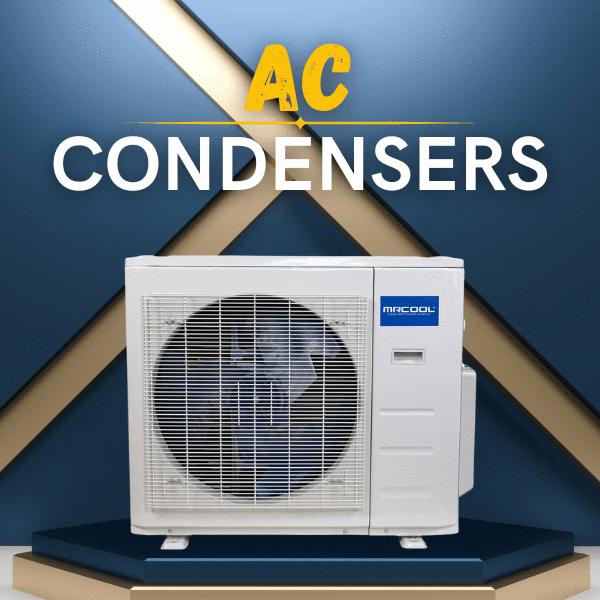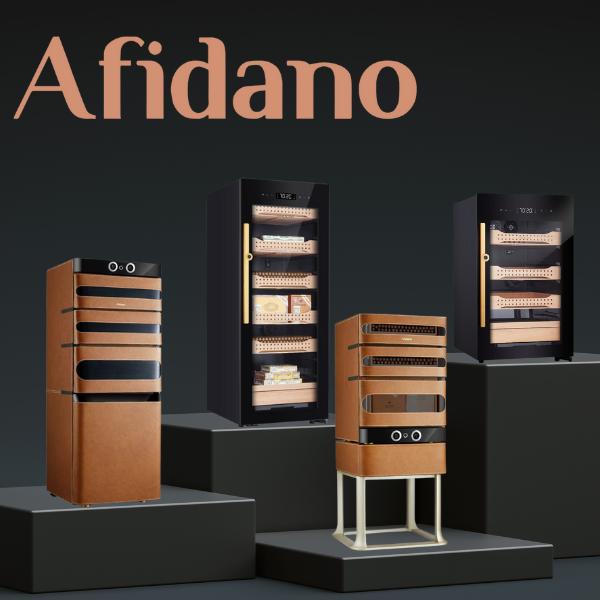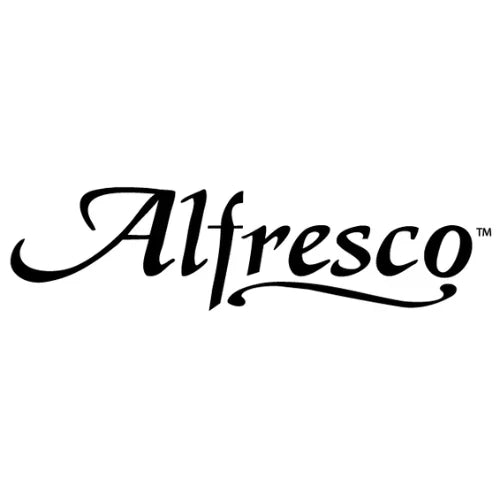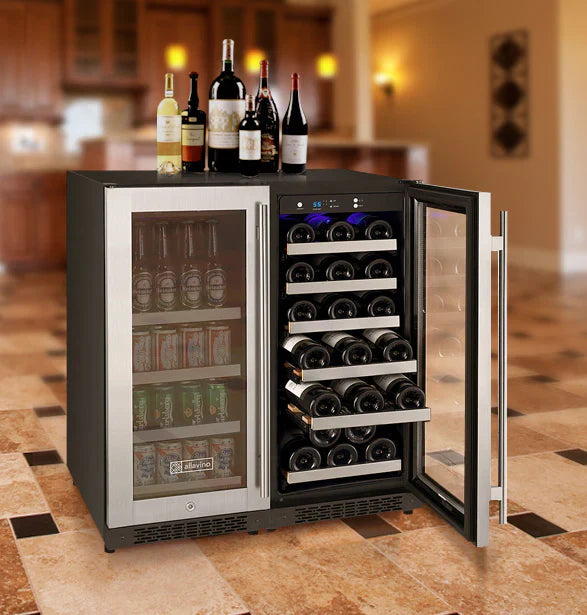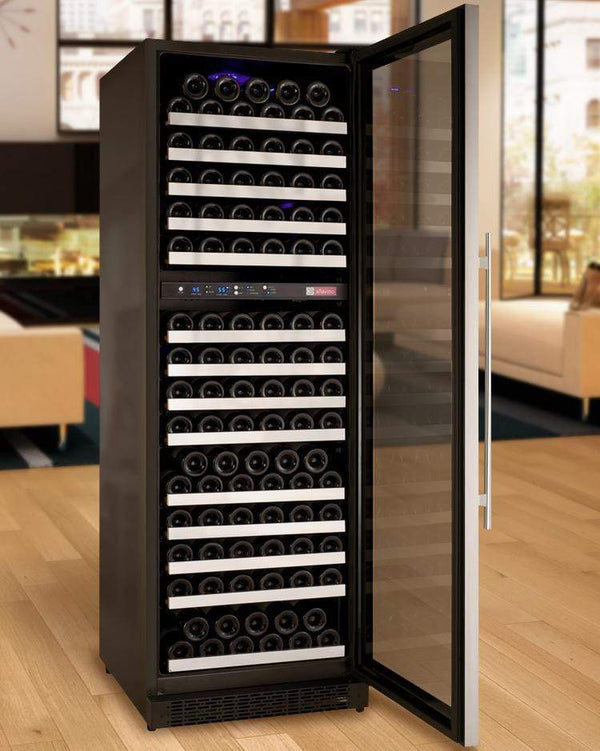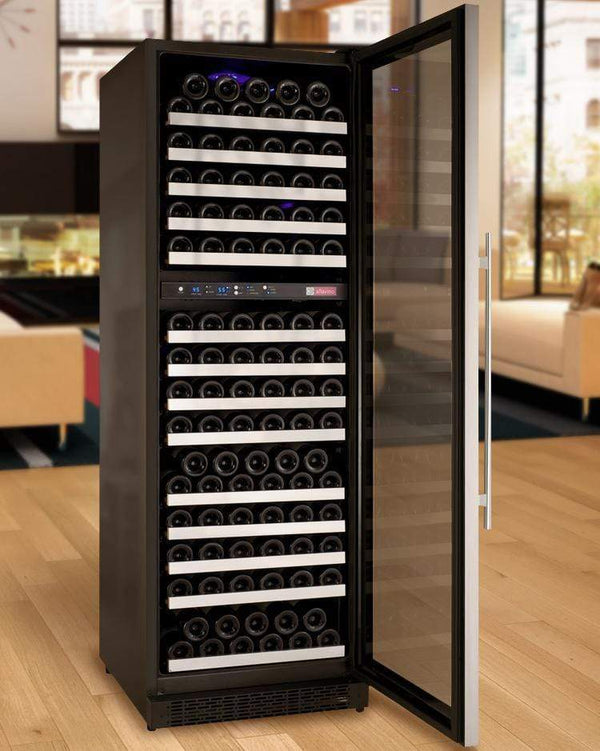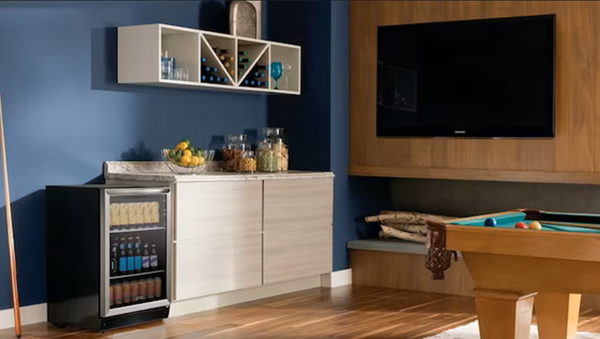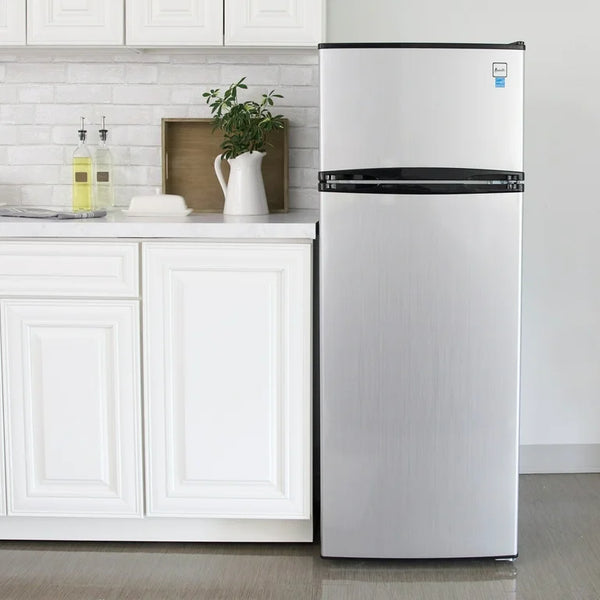Wine Cellar Ventilation Guide: Protect Your Wine Collection
The Importance of Proper Ventilation in Wine Cooling Units
By Jim Hopper, Wine Cooling Expert
Why Proper Ventilation is Essential for Wine Preservation
When building or upgrading a wine cellar, it’s easy to focus on shelving, lighting, and temperature control. But one of the most critical—and often overlooked—factors is proper ventilation. Good ventilation not only protects your wine collection but also ensures your cooling system runs efficiently and lasts longer. If you’re just starting your wine cellar journey, be sure to check out our comprehensive guide on how to build a wine cellar for foundational tips on design, construction, and climate control, or get personalized advice through our Wine Cellar Design support page.
If you’re planning a hands-on project or working with a unique space, don’t miss our DIY wine cellar guide for step-by-step instructions or our basement wine cellar guide for tips on optimizing basement environments for wine storage.
The Interplay of Ventilation, Temperature, and Humidity
Maintaining the right environment in your wine cellar is about more than just moving air. Proper ventilation works hand in hand with temperature and humidity control to create the ideal conditions for wine preservation. Good airflow helps your cooling system regulate temperature evenly throughout the cellar, preventing hot spots or temperature spikes that could harm your wine. At the same time, ventilation helps manage humidity—too little airflow can lead to excess moisture and mold, while too much can dry out the air, damaging corks and causing wine to spoil. By balancing ventilation, temperature, and humidity, you ensure your wines age slowly and gracefully, preserving their flavors and aromas.
Remember, insulation is just as vital as ventilation for maintaining stable temperature and humidity. Discover the best insulation strategies for wine cellars to further protect your collection.
Passive vs. Active Ventilation: Which Does Your Cellar Need?
Wine cellars can be ventilated in two primary ways: passive and active. Passive ventilation relies on natural airflow through strategically placed vents or grilles, which can be sufficient for traditional underground cellars that naturally maintain stable conditions. Active ventilation, on the other hand, uses mechanical systems such as fans, ducting, or cooling units to control air movement and temperature. Modern, sealed, or above-ground cellars often require active ventilation to ensure consistent climate control. Choosing the right approach depends on your cellar’s design, location, and the stability of its environment. For tailored guidance, explore our Wine Cellar Design support.
In addition to ventilation, consider whether your cellar relies on passive or active cooling. Passive cooling uses the natural insulation of underground locations to maintain stable temperatures and humidity, often requiring only minimal ventilation. Active cooling, found in most modern or above-ground cellars, uses mechanical systems to control temperature and humidity and depends on well-designed ventilation to remove excess heat and maintain air quality. Understanding your cellar’s cooling method will help you choose the right ventilation approach.
Types of Cooling and Ventilation Systems
Through-the-Wall Systems:
- These self-contained units are installed directly into a cellar wall, venting heat into an adjacent room. They’re ideal for smaller cellars or spaces with a convenient exhaust location.
Split Systems:
- Split systems separate the noisy condenser from the cellar, placing it in another room or outside, while the quiet evaporator cools the cellar. This setup reduces noise and allows for flexible installation.
Fully Ducted Systems:
- Ducted systems use ductwork to deliver cooled air and remove heat, with all mechanical components located outside the cellar. They offer the quietest operation and the most even temperature distribution, making them a premium choice for larger or high-end installations.
Effective Cooling Unit and Ventilation
HVAC cooling units produce a substantial amount of heat. Our cooling systems are specifically designed to cool the basement area while concurrently expelling heat into the neighboring room. As the unit cools the cellar by absorbing heat from the air, it is crucial for the condenser and evaporator to efficiently release the heat generated during its operation. Properly dissipating this heat from the unit is essential for optimal performance. A significant proportion of cooling unit issues can be attributed to inadequate ventilation.
To ensure that your basement environment enjoys appropriate ventilation, consider implementing the following measures.
- Door Ventilation
- Ceiling Ventilation
- System Ducting Kits
- Adequate Space/Conditioned Surrounding Environment
Incorporating these ventilation techniques will not only guarantee proper operation but also extend the lifespan of your cooling system.
Door Ventilation
Door vents can be installed on both exterior and interior doors to provide a straightforward and intelligent solution for enhancing indoor air quality, promoting air circulation, and improving heating and cooling efficiency. One common cause of pressure imbalances between rooms is suboptimal installation or doors positioned too close to the floor. In tightly sealed spaces, air can often become stagnant, leading to the presence of airborne bacteria and a stale atmosphere. Door vents rectify this by equalizing room pressure, allowing stale air to escape through the vent while ushering in fresh air, thereby mitigating or eliminating hot or cold spots in specific areas.
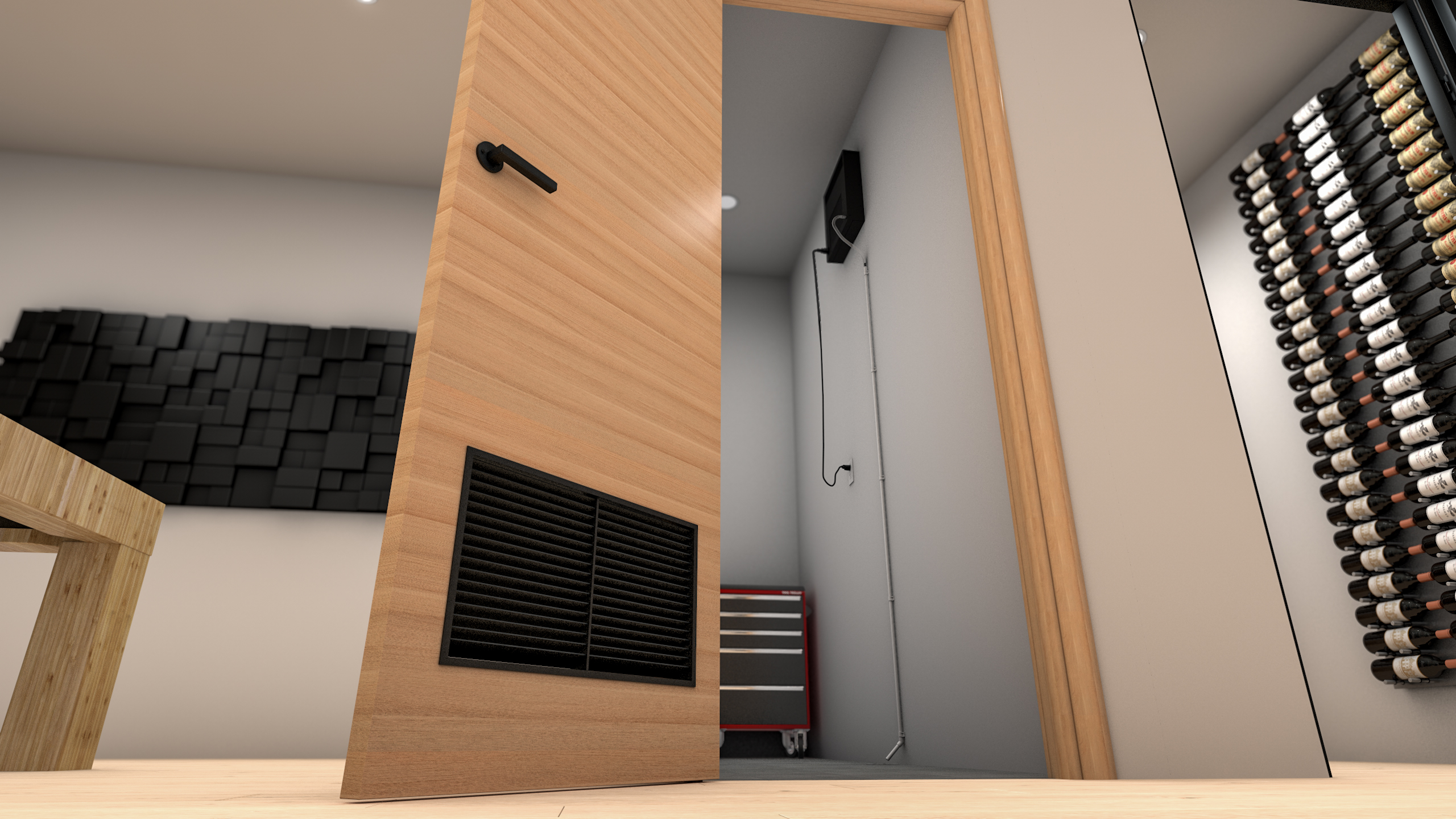
Ceiling Ventilation
Ceiling ventilation fans are devices that can be mounted on ceilings and connected to ductwork for indoor air circulation. These fans, functioning like natural ventilation systems, effectively reduce airborne contaminants and contribute to improved indoor air quality by drawing in fresh air and expelling stale air. The fan operates by drawing air upward through a downward-facing vent, causing it to circulate throughout the room. As the air circulates, it eliminates moisture and odors from the room, expelling them into the ductwork. Subsequently, the air exits through either the roof or an overhanging soffit.
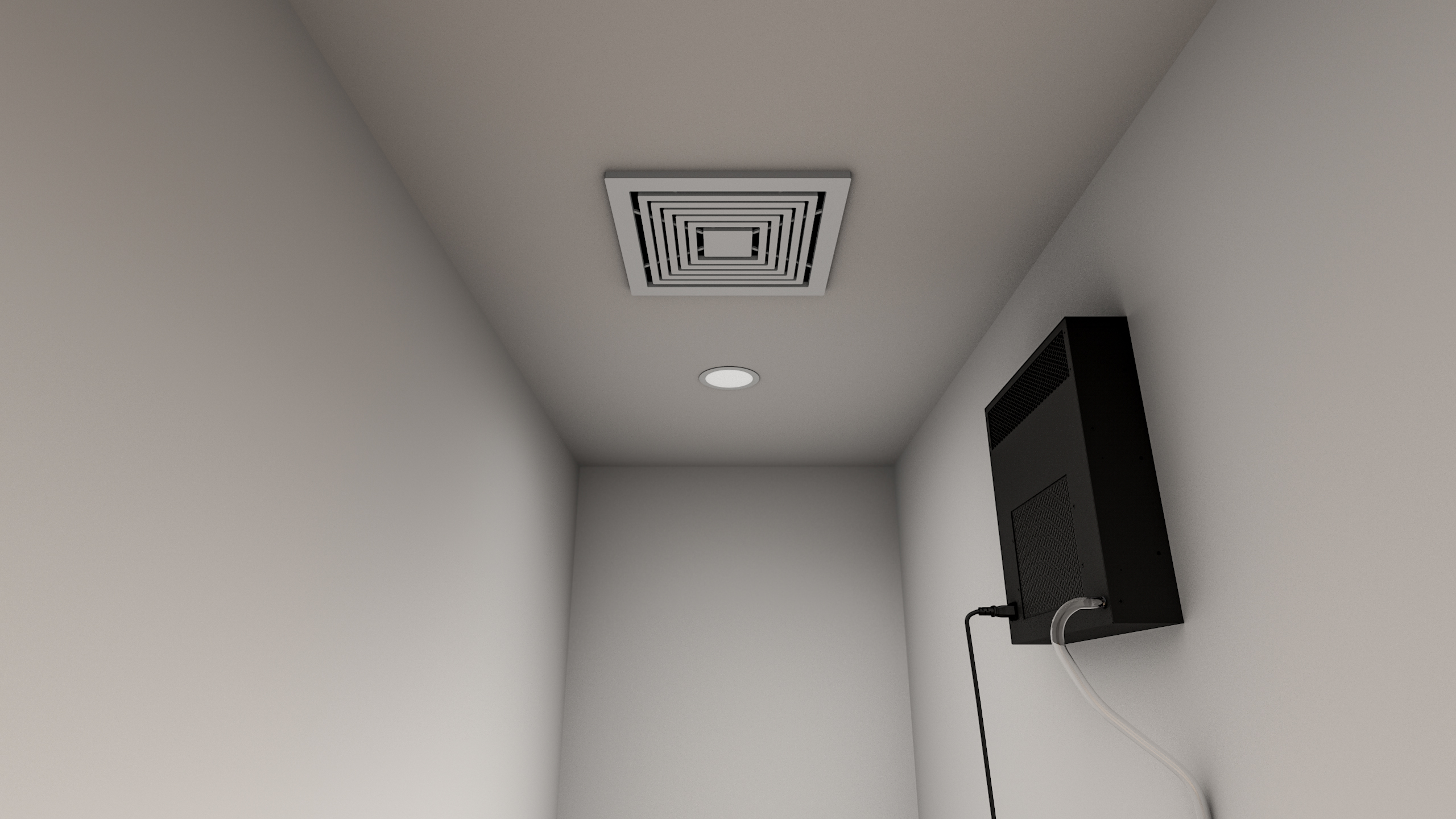
System Ducting Kits
Our system ducting kits are tailored to relocate excess heat from the exhaust of our Through-the-wall units while Ducted Split Systems divide the cooling system into two components, allowing the condenser to be positioned in an area better suited for heat and noise dissipation, while the evaporator is ducted close to the wine cellar. This configuration ensures that your wine cellar remains tranquil and free from vibrations.
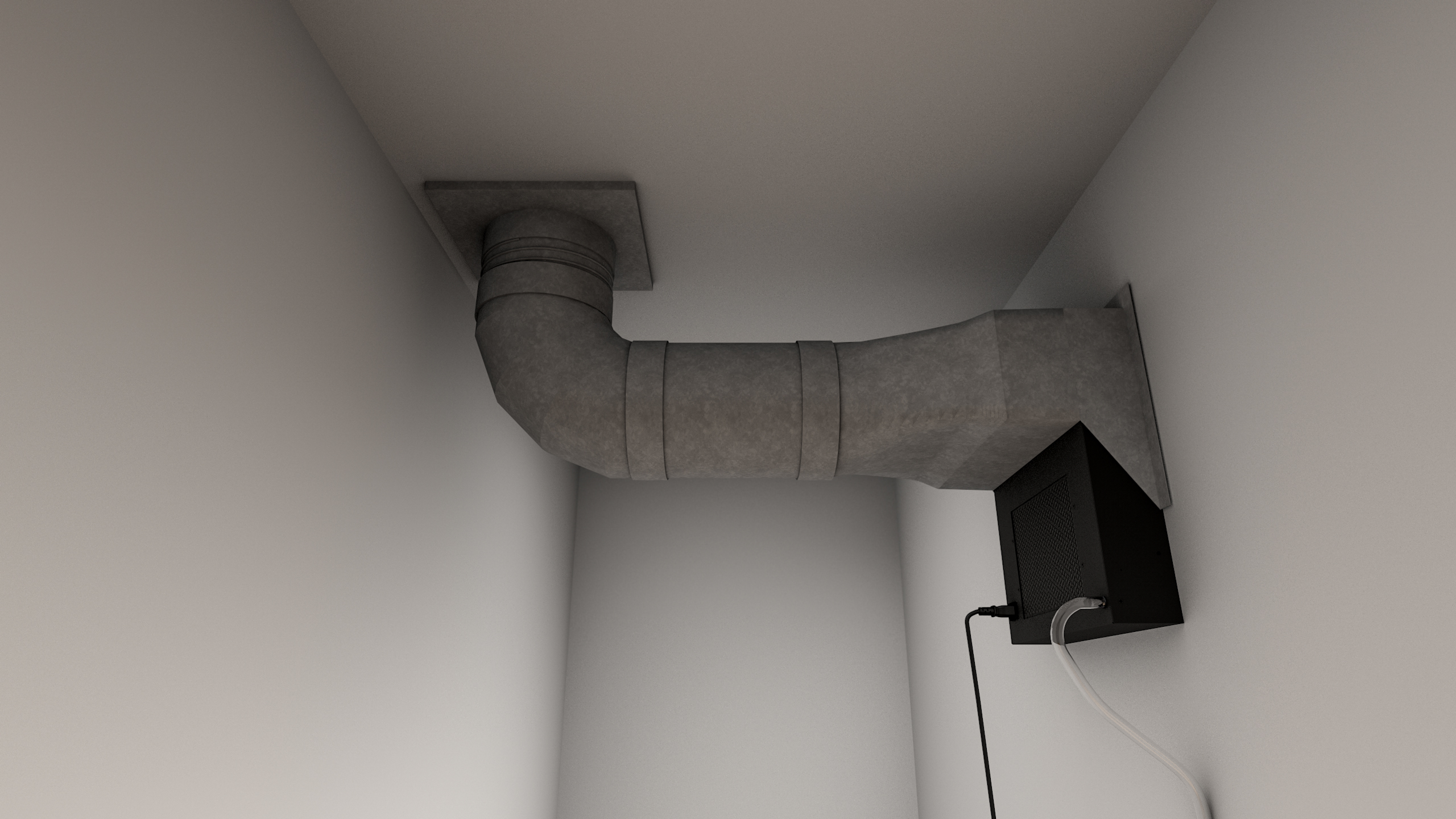
Sufficient Space and Conditioned Surroundings
Maintaining adequate space around your WhisperKOOL wine cellar cooling unit is critical for its longevity. Failure to do so can lead to overheating issues, negatively impacting its performance over time. Inadequate exhaust-air conditions may result in higher-than-normal temperatures inside the wine cellar, diminishing efficiency, jeopardizing product quality, and potentially damaging the cooling unit itself.
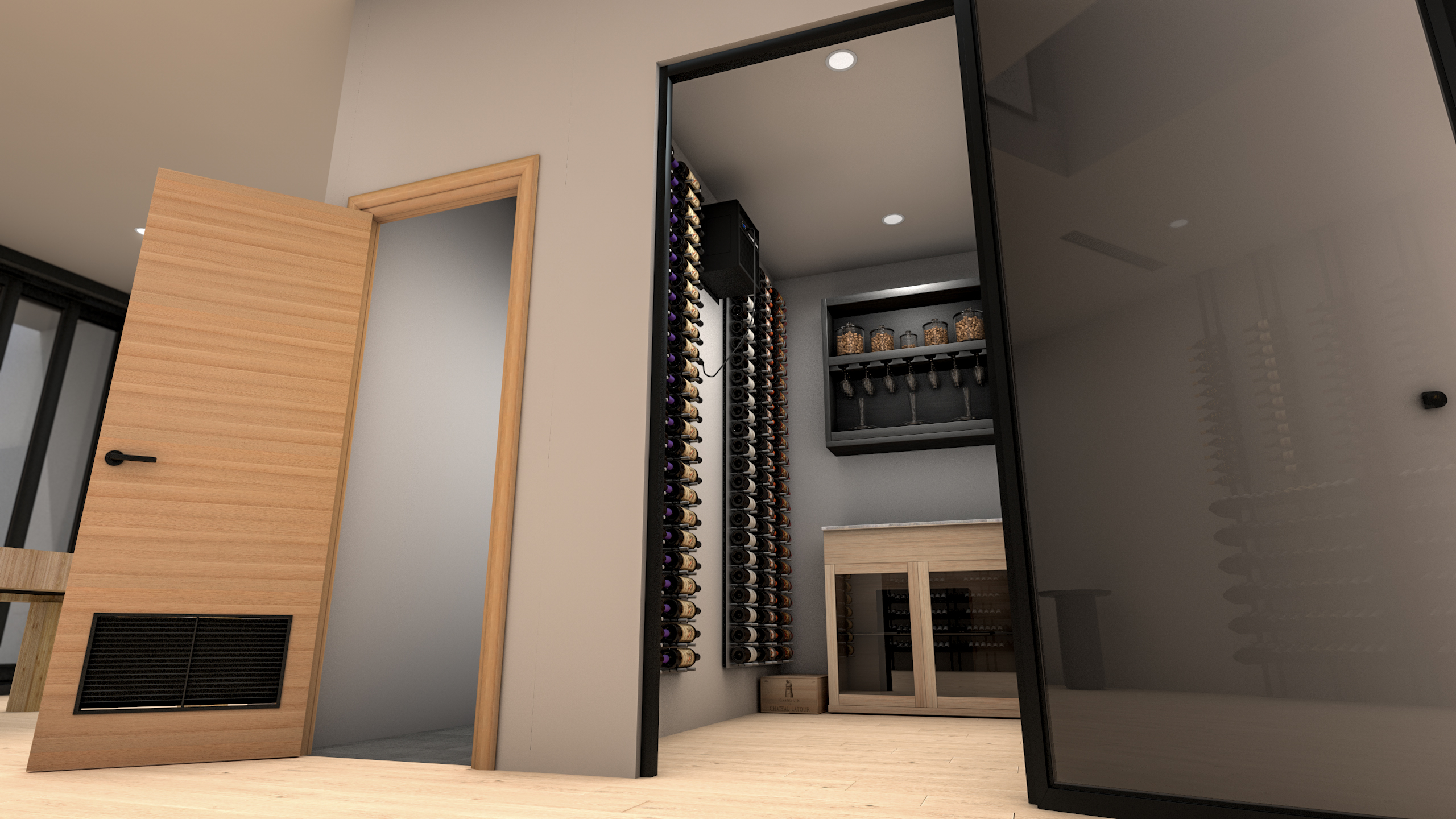
Air Quality and Odor Control: Protecting Your Wine’s Integrity
Wine breathes through the cork, making it sensitive to any odors or contaminants in the cellar air. Poor air quality can seep into the bottle, affecting flavor and aroma. Always keep your wine cellar free from strong-smelling substances like cleaning chemicals, paint, or food. If your cellar is near a garage or kitchen, take extra care with vent placement to avoid drawing in unwanted odors. Good ventilation not only prevents mustiness and mold but also preserves the pure character of your wine collection.
Avoiding Over-Ventilation and Unwanted Odors
While ventilation is necessary, too much airflow or poorly placed vents can cause problems. Excessive ventilation may create drafts that disturb the wine or dry out the cellar, while vents located near garages, kitchens, or chemical storage areas can introduce unwanted odors. Always ensure vents are positioned away from sources of strong smells and avoid creating direct drafts on your wine racks.
Troubleshooting Common Ventilation Issues
Why does my cellar smell musty?
- Check for blocked vents, excess moisture, or mold growth. Improve airflow and consider using a dehumidifier if humidity is too high.
My cellar feels too dry—what should I do?
- If humidity drops below 60%, add a humidifier or place a shallow container of water in the room. Ensure you’re not over-ventilating.
The cooling unit is running constantly.
- This may indicate poor ventilation or an undersized system. Ensure exhaust heat is properly vented and there’s enough space around the unit.
When should I call a professional?
- If you notice persistent issues with temperature, humidity, or odors, or hear unusual noises from your cooling system, consult a wine cellar specialist.
Ventilation Tips for Different Wine Cellar Types
Traditional Underground Cellars:
- Often benefit from passive ventilation with simple wall or door vents. Monitor for humidity and odors.
Modern, Sealed, or Above-Ground Cellars:
- Usually require active ventilation and mechanical cooling. Ensure your system is properly sized and maintained, and that exhaust heat is vented away from the cellar.
Choosing the right location and design can make a big difference in how easily you maintain proper ventilation and climate control. For inspiration and practical advice, see our guides on the best places to put a wine cellar in your home and creative wine cellar design ideas.
Maintenance and Monitoring: Keeping Your Cellar in Top Shape
Regular maintenance is key to ensuring your wine cellar’s ventilation and cooling systems continue to perform at their best.
- Inspect and clean vents and fans periodically to prevent dust buildup or blockages. - Check for unusual odors, excess moisture, or temperature fluctuations—these may indicate a ventilation issue.
- Use a hygrometer and thermometer to monitor humidity and temperature, making adjustments as needed.
- Schedule annual professional inspections for mechanical cooling systems to catch potential problems early.
By staying proactive, you protect both your wine and your equipment for years to come.
Conclusion
In conclusion, we've learned how important it is to have good ventilation in wine cooling systems. Proper ventilation helps them work their best. We've discussed different ways to improve ventilation, like using door vents, ceiling fans, and ducting kits. At Wine Coolers Empire, we're proud to offer a great selection of wine cooling units and cellars that are top-notch for preserving your wine.
Ventilation and Humidity: Finding the Right Balance
Ventilation and humidity go hand in hand in a wine cellar. Proper airflow helps prevent excess moisture and mold, but too much ventilation can dry out the cellar, causing corks to shrink and allowing air to spoil your wine. Aim to keep humidity levels between 60% and 70% for optimal storage. Use a hygrometer to monitor conditions, and consider adding a humidifier or water source if your cellar tends to be dry.
If you have questions or need help, just email us at support@winecoolersempire.com or give us a call at +1-888-407-7770 or visit our Wine Cellar Design support page for expert assistance. We're here to make sure your wine cellar stays in perfect condition, so you can enjoy it to the fullest. Cheers to great wine!
📚 Frequently Asked Questions (FAQs)
What is the ideal temperature for wine storage?
Why is humidity important in wine storage?
How does proper ventilation benefit wine cooling systems?
What is the primary purpose of ventilation?
Why is a wine cellar important?

Designing or Upgrading a Wine Cellar?
We got you! Here at Wine Coolers Empire, we will guide you in building your dream wine cellar.

